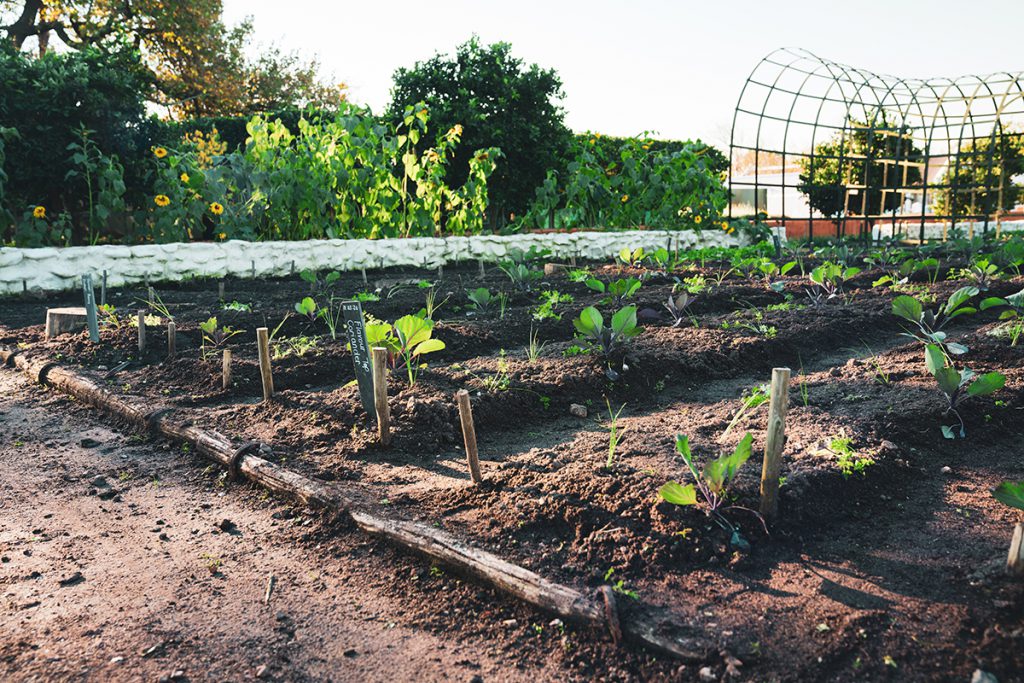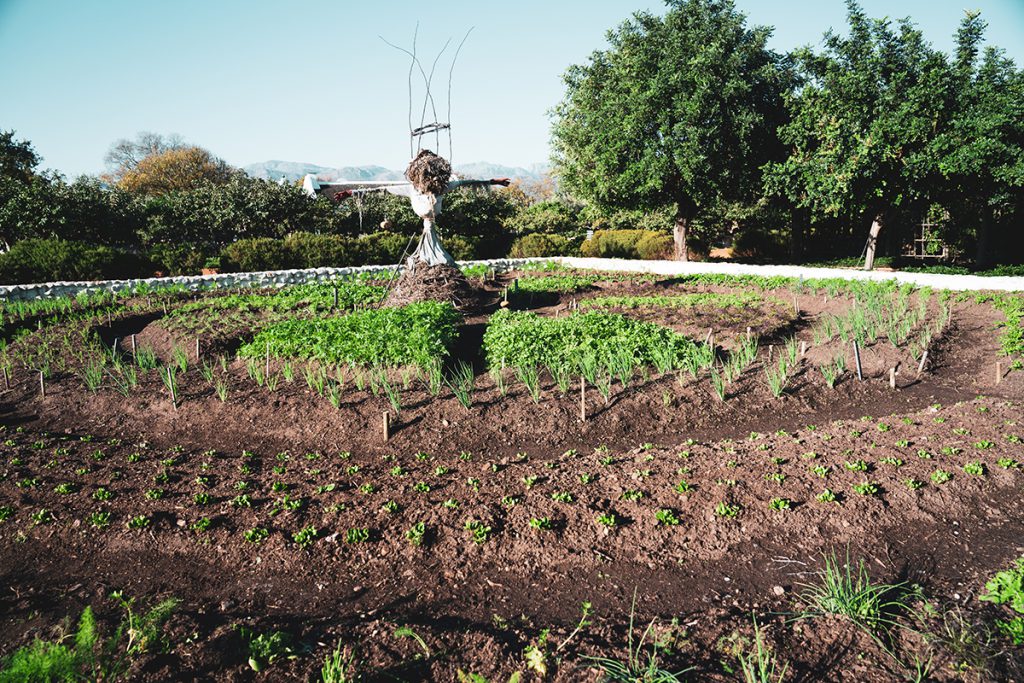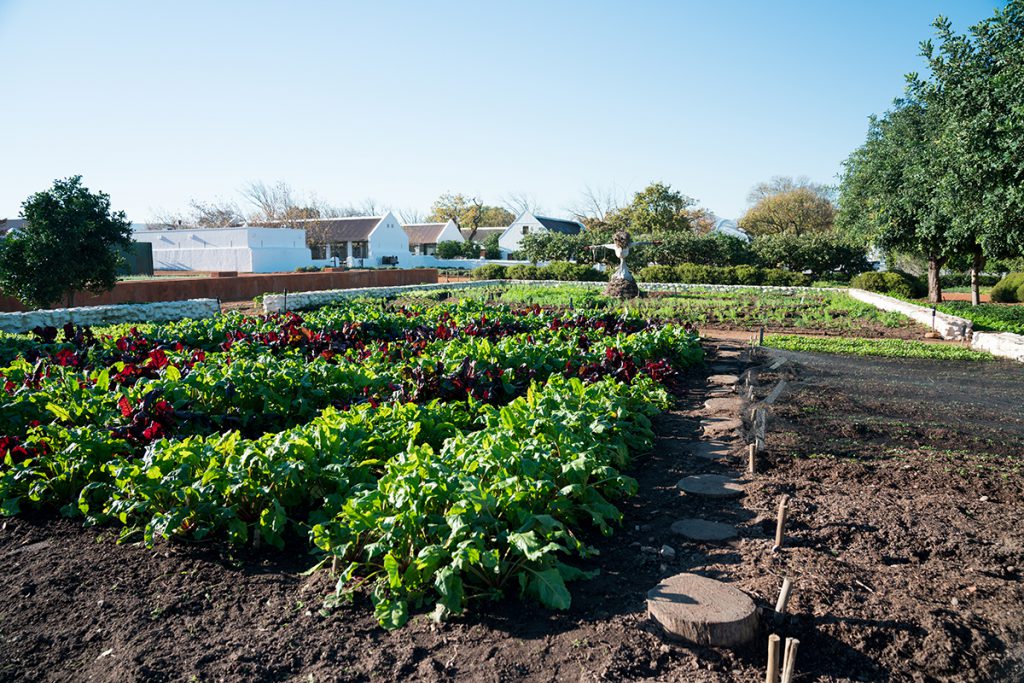
Restaurants
Spa
Day Visits
Shop
Functions
16°C
April 2nd, 2015
We are trialling the no-dig method in our garden’s veggie block. It all started with a visit from organic veggie producer, Tia Cusden, who grows a variety of delicious salad leaves in Somerset, England.
Tia explains: “Although it might seem counterintuitive to many gardeners, not digging echoes nature, where the soil structure is left undisturbed. New organic matter, like fallen leaves and dead plants, is left on the surface of the soil – this is then pulled down into the soil by earthworms, aerating as they go.

There’s science behind this madness, as the most microbial activity takes place in the top layer of soil, where a delicate network of mycorrhizae conveys nutrients to plants over considerable distances. To interfere in this process with man-made spades and ploughs knock the wellbeing of the soil, which then needs time to recover its balance”.
Provided that you start with clean soil, the advantages of using a no-dig method includes less weeding, less maintenance and better water retention.


After this initial soil preparation, the no-dig beds will never be dug over again. We’ll simply add organic matter on top of the beds annually, or as required – leaving it to our earthworm friends to do the digging.
Anything which means less work is great for me. Does it work for fynbos flowerbeds as well?!
Problem is very few earthworms in my garden.
Dit klink nou vir my fantasties. Het met ‘n gemeenskapstuin op my sypaadjie begin en gaan hierdie beginsel toepas.